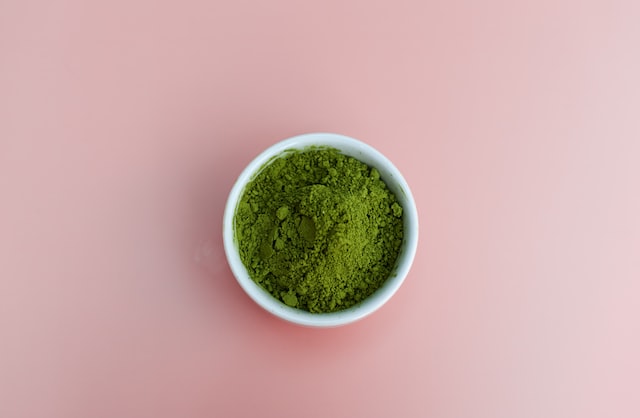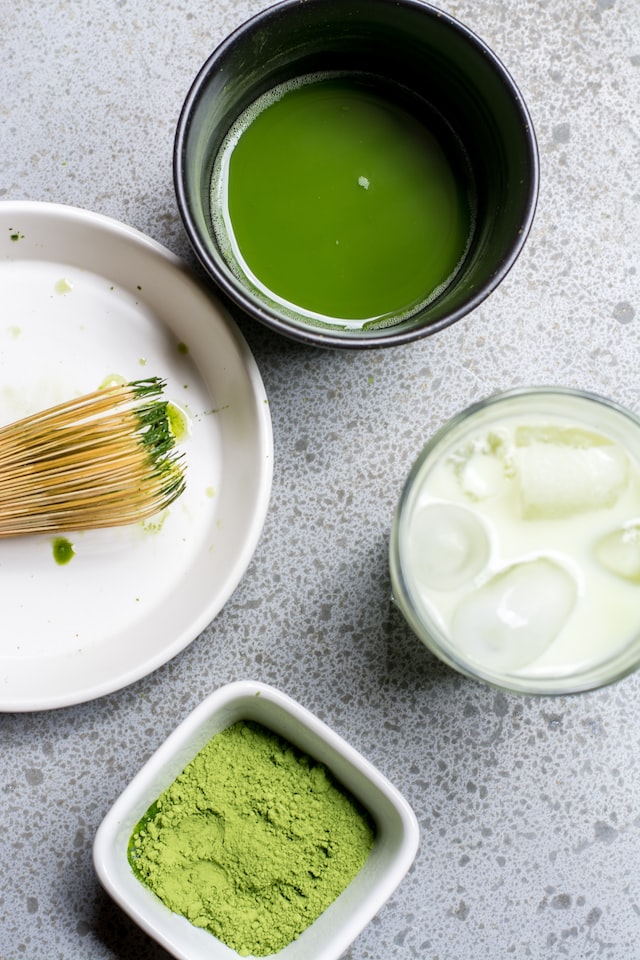Between different social media platforms promoting and influencing many individuals to purchase green powders to improve their everyday lifestyle, it is difficult to understand if the product overall is worth your investment. Are they considered a good supplement to eating vegetables regularly? Are these green powders actually equivalent to multiple servings of fruits and vegetables? Find out our thoughts here!
What are Green Powders?
Green Powders consist of supplements, specifically leafy greens, seaweed, probiotics, and enzymes that often include high levels of vitamin C. They can be a concentrated mixture of powdered and dried plants/fruits that individuals consume in order to obtain certain health benefits. These powders are often added to water, many different beverages, or even soups and dips. You may see many dietitians or fitness professionals recommend these green powders as a way to reach their body’s recommended intake of minerals and vitamins yet there are some important factors to take into consideration before purchasing these products.

The Research Behind Powdered Greens
There are definitely some beneficial aspects to green powders proven through scientific studies. Those being, they are beneficial in reducing blood pressure, supporting the immune system, and preventing chronic diseases. The ingredients found in these powders are high in antioxidants and many micronutrients which can protect an individual’s cells from free radicals. Although you are obtaining nutrients and antioxidants from these greens, there is little to no fiber and there are more significant benefits in eating whole foods. A lot of the powdered greens marketed can be considered powdered multivitamins since a lot of the ingredients on the nutrition facts label are packed into proprietary blends, so there is no clear number of how many vegetables you are actually consuming.
False Claims
One of the main claims regarding powdered greens is its beneficial ways of improving gut health. Due to the insufficient amount of fiber found in these products, those who are sensitive to high amounts of fiber will find less bloating, however, numerous ingredients are known to cause bloating and gas. “You can substitute these greens supplements into your diet in replace of whole fruits and vegetables,” is another inaccurate myth. Disregarding the number of vegetables or fruits the ingredients list may claim, at the end of the day it still is a supplement. Supplements are not meant to replace important elements of your diet, but they are meant to add benefits and support a well-balanced diet. Green powders are also not meant to induce weight loss. If meals and food items are replaced with green powders, weight loss is expected due to calorie deficit. The goal of powdered greens is to provide additional leafy green intake to your naturally balanced diet, not replace meals.
What to Look For in Green Powders?
If you overall are interested in trying green powders due to a lack of interest or difficulty in incorporating actual fruits and vegetables into your diet, it’s important to choose a green powder that maximizes the benefits mentioned. Look for greens that contain at least 2 grams of fiber, as most green powders do not. If you’re looking for a green powder to decrease stomach bloating, avoid ingredients such as insulin fiber, fructooligosaccharides, apple powder, and chicory root. Lastly, it is smart to check if a product has been tested by a third party to look for contaminants such as lead and heavy metal content. These third parties also ensure that you are obtaining everything the ingredient label claims. Greens should be considered to “top off” your healthy diet, as they are not significant in providing an abundant amount of necessary nutrients.

Are Green Powders Worth It?
Overall green powders are not necessary and scientific claims are often exaggerated. Regarding price, greens powders are typically on the more expensive side as they range from $30-$40 whereas whole greens and fruits are significantly cheaper while also being significantly beneficial. For someone who hates vegetables and is aware they are not taking in enough nutrients, a greens powder is considerable and can be supplemental. Other populations that may potentially benefit from consuming green powers are those that typically have little to no appetite or poor overall intake such as the elderly or those undergoing cancer treatment.
The supplement industry convinces individuals that supplements are better than food when it is important and more beneficial for you to eat minimally processed vegetables as your priority in its whole form. Whole foods are superior in nutrients such as fiber and you are obtaining the natural synergy of all of these nutrients together. For optimal health, food before supplements is always recommended such as a variety of nuts, fruits, vegetables, whole grains, and seeds.
If you’re unsure if you’re eating enough of the right nutrients in your diet, schedule a free discovery call with our registered dietitian! In this discovery call, we’ll create a plan to help you to move forward, identify what’s not working, and create a plan to optimize your nutrition. You can schedule your free call here.
This article was written by Sammy Bran, nutrition intern. Fact checked by Allison Tallman, RD.

